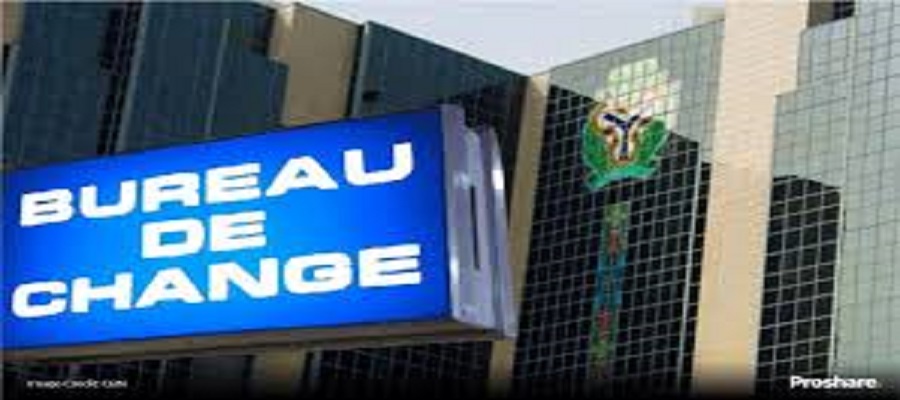E-Financial
Path Solutions Leads on Sharia Compliance with New Software Certification

Path Solutions, the global leader in Islamic banking technologies for the Islamic financial services sector, has announced that its iMAL Islamic banking and investment system has successfully completed AAOIFI compliance engagement on the scope of the review (as per the International Standard on Related Services 4400 applicable to Agreed-Upon Procedures).
The work has been conducted by Deloitte, a world-renowned professional services firm in audit, consulting, financial and Sharia advisory, enterprise risk and tax services.
Following a rigorous, phased approach project that entailed examination sessions with unprecedented collaboration between Path Solutions’ Product Strategy team and Deloitte’s Islamic Finance and Sharia professionals, the Deloitte Islamic Finance Knowledge Center has reported no exceptions on the compliance of iMAL Islamic core banking system with Sharia principles, and the Sharia and accounting standards issued by AAOIFI.
As such, Deloitte results of the related work show that Path Solutions’ iMAL, Islamic business processes (procedures and workflows), contracts and related accounting entries are in compliance with the provisions of Islamic Sharia, and this increases the confidence of Islamic banks and financial institutions in adopting the company’s multi-award winning Islamic software solutions.
Commenting on the software compliance review, Mohammed Kateeb, Path Solutions’ group chairman & CEO, said “Path Solutions is very keen on strict compliance with Sharia and industry standards in the development of its Islamic banking applications, which reflects the eagerness and interest of our clients and prospects worldwide in adopting our genuinely Sharia-compliant software solutions”.
And he added, “This global review of compliance from Deloitte further strengthens our position and places us years ahead of our competitors who are simply unable to launch such pioneering initiatives, which represent an important high value addition to the constant strategic initiatives undertaken by Path Solutions. We consider it a great responsibility to provide our clients with truly Sharia-compliant software solutions and services, and strive to ensure this by meeting the soundest industry standards”.
Path Solutions has hired the services of Deloitte’s prominent Sharia experts and professionals in the area of Islamic finance and industry standards, with a specialized knowledge in Islamic banking practices around the world.
The Deloitte Islamic Finance Knowledge Center represents a Center of Excellence and a one-stop shop for Thought Leadership in Islamic finance.
iMAL is an industry-proven and trusted Islamic core banking system specifically built from the ground up to support Sharia banking operations.
The system is truly geared to address country and region-specific Islamic banking requirements.
Moreover, the flexibility and intuitive design of iMAL enables Islamic financial institutions to quickly launch competitive Sharia-compliant products and services while reducing IT dependency and cost.
E-Financial
CBN Waives 2025 Licence Renewal Fee for Bureaux de Change Operators

Central Bank of Nigeria (CBN) has waived the 2025 licence renewal fee for all bureaux de change (BDC) operators.

Jonah Onojah, director of the financial policy and regulation department, announced that the waiver took immediate effect.
“This is to inform all existing bureaux de change that further to the Regulatory and Supervisory Guidelines for Bureau De Change Operations in Nigeria, 2024, and the ongoing transition to the new BDC regulatory structure, the Central Bank of Nigeria (CBN) has approved the waiver of 2025 licence renewal fee, effective immediately,” the statement reads.
“Any bureau de change that has paid for 2025 licence renewal is hereby advised to apply to the Director, Financial Policy and Regulation Department, Central Bank of Nigeria for refund to its account from which the payment emanated.
“The CBN remains committed to fostering stability, transparency, and efficiency in the foreign exchange market while ensuring that operators align with the revised regulatory framework,” the statement said.
On May 22, 2024, CBN approved new guidelines for BDC operations to improve compliance and oversight.
In the guideline, CBN said all existing BDCs are to re-apply for a new licence according to any of the tiers or licence categories of their choice.
CBN said the guidelines are part of its efforts to re-position the BDC market to play its envisioned role in the foreign exchange market in Nigeria.
E-Financial
PalmPay is not a Loan App, says MD

PalmPay, a Mobile Money Operator and digital payment platform has reaffirmed its role as a mobile payment provider, correcting the insinuation that it is a loan App.

Chika Nwosu, Chief Executive Officer, PalmPay, speaking at a press conference in Lagos clarified that PalmPay’s core mission is to provide seamless payment solutions and financial services, not to issue loans.
This clarification became necessary against erroneous messages in some social media platforms that the PalmPay is a loan App, as well as individuals wearing PalmPay-branded clothing allegedly been involved in arresting loan defaulters, raising concerns about the company’s role in debt recovery practices.
He explained that all lending activities on its platform are conducted by third-party financial institutions leveraging its ecosystem, not PalmPay itself.
“PalmPay is not a loan App. We provide a platform for third-party financial institutions to offer their services, including loans, to our users. These institutions operate independently and comply with all regulatory requirements,” Nwosu explained.
More so, Chika Nwosu identified smartphone penetration, internet connectivity and innovative technologies as key factors that are crucial to increased access to mobile money services in Nigeria.
According to him, with smartphone penetration projected to reach 65% by 2026 as well as improved internet infrastructure, more Nigerians will be enabled to access mobile money services.
He disclosed that, with fintech companies such as PalmPay evolving through digital wallets and seamless payment gateways, accessibility to mobile money service was bound to expand soon.
He emphasized that with demand for affordability of financial services growing, more opportunities would be unlocked for PalmPay in the nearest future.
“From under 10,000 agents in 2015 to over 1.5 million agents in 2023, agent networks have become the backbone of mobile money operations in Nigeria. For this reason, we are more likely to see a sharp increase in the number of mobile money agents and merchants. Apart from that, MMOs will increasingly use artificial intelligence to improve customer experiences, such as machine learning, predictive analytics, and fraud detection,” he said.
Donald Ubeh, Head, Risk and Compliance, MLRO at PalmPay, while highlighting the impact of fintech companies such as PalmPay, explained that the coming of PalmPay has led to economic empowerment particularly for individual users and several Small and Medium Scale enterprises.
He noted that many Nigerians including bank customers have migrated their funds to PalmPay owing to convenience and accessibility it provides.
He added that mobile money operators were conceived with the aim of driving financial inclusion for the underserved and unbanked population.
According to EFInA, increasing adoption of fintech companies by Nigerians has led to increase in financial inclusion rate by 13% in 13 years.
E-Financial
Moniepoint MFB Says Rumours of N1.1Bn Theft by Hackers Malicious

Moneipoint has denied reports that Moniepoint MFB, its microfinance bank, was hacked and some N1.1 billion allegedly stolen.

Moniepoint, in a blog post said that the report, which began on social media was malicious and misleading and should be ignored.
According to the company, the alleged theft gained traction on social media, alleging that the company is facing operational challenges due to the hack.
“We categorically state that these claims are untrue, and we urge the public to disregard them in their entirety.
Moniepoint MFB has always maintained the highest standards for digital security and customer fund protection.
It stated that as a duly authorised and licensed financial institution, customer deposits with Moniepoint MFB are insured by Nigeria Deposit Insurance Corporation (NDIC), with the Central Bank of Nigeria (CBN) supervising and regulating its operations to ensure adherence to all applicable standards.

 E-Financial1 day ago
E-Financial1 day agoMoniepoint MFB Says Rumours of N1.1Bn Theft by Hackers Malicious

 General News1 day ago
General News1 day agoCourt Orders Arrest of Access Bank Acting MD, Others over Alleged Theft of Property

 E-Financial1 day ago
E-Financial1 day agoWorld Bank Urges CBN to Sustain Inflation Control Measures

 Telecom1 day ago
Telecom1 day agoSERAP Drags Tinubu, Others to Court over ”Arbitrary” Telecom Tariff Hike

 Telecom1 day ago
Telecom1 day agoFG, WIOCC Partner to Deliver Internet to 3m Homes with $10m Investment

 E-Financial1 day ago
E-Financial1 day agoZenith Bank Reinforces Commitment to Staff Wellbeing with Salary Hike and Promotions

 E-Financial1 day ago
E-Financial1 day agoSEC Warns against Transactions with Risevest, Stecs Cooperative Societies

 News1 day ago
News1 day agoARCON to Sanction Perpetrators of Misleading Adverts



















